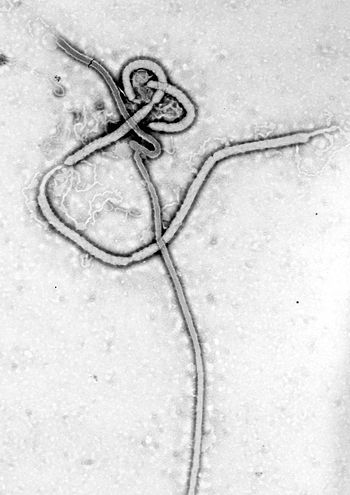 |
| (Photo credit: Wikipedia) |
Despite
repeated assurances that the Ebola virus cannot be transmitted via
airborne particles, the CDC is concerned about that very outcome and has
directed airline staff to take steps to prevent the spread of
“infectious material through the air.”
While Ebola is highly contagious, the risk of a full blown pandemic has been downplayed by health authorities because, according to our current understanding of the virus, Ebola, “is not airborne and is transmitted through contact with bodily fluids, including sweat and blood.”
However, with concerns rising that the current strain of the virus, which is the worst in history and has killed 887 people, could in fact be airborne, the Centers For Disease Control has implemented steps to prevent its spread via international air travel.
A CDC advisory entitled Interim Guidance about Ebola Virus Infection for Airline Flight Crews, Cleaning Personnel, and Cargo Personnel reveals that the federal agency is concerned about airborne contamination.
The advisory urges airline staff to provide surgical
masks to potential Ebola victims in order “to reduce the number of
droplets expelled into the air by talking, sneezing, or coughing.” (emphasis mine).
The CDC is also directing airline cleaning personnel to, “not use compressed air, which might spread infectious material through the air.” (emphasis mine).
The CDC’s concern about the Ebola virus being spread via the air is understandable in light of a 2012 experiment conducted by Canadian scientists which proved that, “the ebola virus could be transmitted by air between species.”
Researchers demonstrated that the virus could be
transmitted from pigs to monkeys without any direct contact by placing
the two animals in pens separated only by a wire barrier. After eight
days, some of the monkeys were found to have symptoms of Ebola likely as
a result of “inhaling large aerosol droplets produced from the
respiratory tracts of the pigs.”
Read more here:
Airborne? CDC Now Confirms Concerns of Airborne Transmission of Ebola |


No comments:
Post a Comment